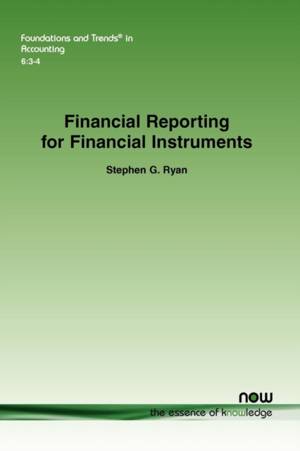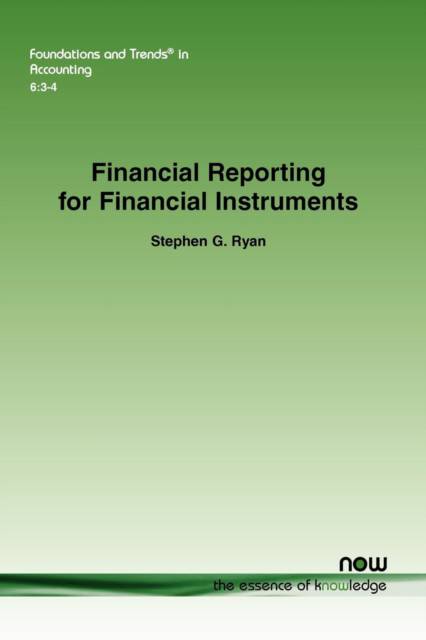
- Retrait gratuit dans votre magasin Club
- 7.000.000 titres dans notre catalogue
- Payer en toute sécurité
- Toujours un magasin près de chez vous
- Retrait gratuit dans votre magasin Club
- 7.000.0000 titres dans notre catalogue
- Payer en toute sécurité
- Toujours un magasin près de chez vous
Description
Financial Reporting for Financial Instruments develops the foundational knowledge related to financial instruments and the markets in which they trade, financial institutions and their internal decision-making and external circumstances, and currently required and credible alternative financial reporting for financial instruments. While the main focus is the financial reporting for financial instruments, the author also considers financial reporting by financial institutions. Particularly commercial banks and thrifts for the following reasons: First, financial institutions are the largest holders of financial instruments, with both sides of their balance sheets typically dominated by these instruments. Second, financial institutions provide rich sets of information about their financial instruments, individually and collectively, in their financial reports. Third, financial institutions play essential roles in providing liquidity and absorbing or distributing various types of economic risks. Fourth, it is often suggested that banks and other types of financial institutions are amenable to accounting research due to their homogeneity. Financial Reporting for Financial Instruments gives an introduction to fundamental issues in financial reporting for financial instruments that is accessible to readers who do not have extensive prior knowledge of structured finance transactions and of the accounting for those transactions. It is however assumed that readers have reasonable background knowledge about financial instruments and solid understandings of introductory financial accounting. Following the introduction, Chapter 2 provides important background information for the topics covered in this monograph. Chapter 3 examines banks' loan loss accruals. Chapter 4 examines fair value accounting for financial instruments. Chapter 5 examines instruments-such as derivatives, loan commitments, and retained residual securities from securitizations-which have small values relative to their risks, i.e., are "risk-concentrated." Finally, chapter 6 examines required risk disclosures related to financial instruments in financial reports under GAAP and SEC rules.
Spécifications
Parties prenantes
- Auteur(s) :
- Editeur:
Contenu
- Nombre de pages :
- 178
- Langue:
- Anglais
- Collection :
- Tome:
- n° 20
Caractéristiques
- EAN:
- 9781601986160
- Date de parution :
- 16-12-12
- Format:
- Livre broché
- Format numérique:
- Trade paperback (VS)
- Dimensions :
- 156 mm x 234 mm
- Poids :
- 258 g

Les avis
Nous publions uniquement les avis qui respectent les conditions requises. Consultez nos conditions pour les avis.






